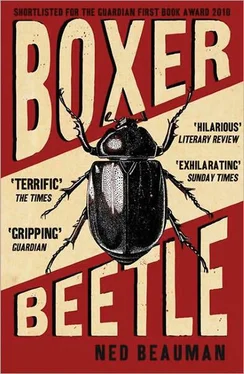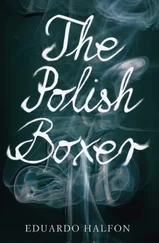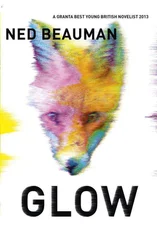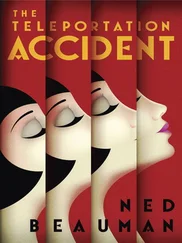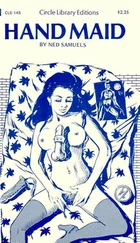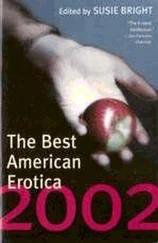Ned Beauman
Boxer, Beetle
… we are all accustomed to believe that maps and reality are necessarily related, or that if they are not, we can make them so by altering reality.
Jane Jacobs, The Death and Life of Great American Cities
Dissonance is the truth about harmony.
Theodor Adorno, Aesthetic Theory
In idle moments I sometimes like to close my eyes and imagine Joseph Goebbels’ forty-third birthday party. I like to think that even in the busy autumn of 1940, Hitler might have found time to organise a surprise party for his close friend — pretending for weeks that the date had slipped his mind, deliberately ignoring the Propaganda Minister’s increasingly sulky and awkward hints, and waiting until the very last order had been despatched to his U-boat commanders on the evening of Tuesday, 29 October before he led Goebbels on some pretext into the cocktail lounge of the Reich Chancellery. A great shout of ‘ Alles Gute zum Geburtstag! ’, a cascade of streamers, some relieved and perhaps even slightly tearful laughter from Goebbels himself as he embraced the Führer, and the party could begin.
All this is conjecture, of course. But what is certain is that at some point on that day Hitler presented Goebbels with his birthday present: an exquisite fifteen-volume illustrated edition of the complete works of Goethe, published in Stuttgart in 1881 by J. G. Gottafchen, bound in red Morocco leather with a gilded spine and marbled edges.
One can’t help feeling sorry for the soldiers of the 101st US Airborne Division who, nearly five years later, broke into a boarded-up salt mine near Berchtesgaden and splintered the schnapps crates piled inside to find not gold bullion, nor the Holy Spear of Destiny that pierced Christ’s side, nor even a single consolatory bottle of schnapps, but instead Goebbels’ personal library, stashed there in haste when the war began to turn against the Nazis. None the less, somebody was dutiful enough to make sure the books escaped the bonfires, and they were shipped back to the Library of Congress in Washington. (Meanwhile, the vast majority of Hitler’s sixteen thousand books, along with his skull and Eva Braun’s underwear, were captured by the Red Army and to this day lie mouldering in an abandoned baroque church on the Uzkoe estate near Moscow, which I can only assume is, by some distance, the spookiest building in the entire world.)
The book collection wouldn’t even be unpacked until 1952, when the job was given to a college student on work experience who probably wished he was helping out at a summer camp. By then the Gottafchen Goethe, with its fond inscription by Hitler and scattered marginalia by Goebbels, had escaped on to the open market. And some fifty years later it passed into the hands of Horace Grublock, the London property developer who until his violent death earlier this year was an irregular employer of mine.
Between 2002 and 2007 Grublock gave me three volumes (from Prometheus through to Iphigenie auf Tauris ) in exchange for errands, promising that one day, if I were loyal, I would collect the whole set. It was humiliating, but Grublock said he’d never sell — and even if he did, the sort of dealers who could handle the Goebbels Gottafchen Goethe wouldn’t have taken so much as a telephone call from the likes of me, Kevin Broom — and even if they would, I could never have afforded it — so I had no choice. That’s why, one day in September, when Grublock called at ten o’clock on a Thursday night, back when I’d never even heard of the town of Roachmorton, I ran for my phone with toothpaste still dribbling from my mouth, knowing it had to be him.
‘Fishy,’ he said.
‘Yes, Horace?’
‘You remember that private investigator who’s been doing a spot of work for me? Zroszak?’
‘I think so.’
‘He’s supposed to check in every evening by telephone. But he’s missed two nights now, without any warning. I’ve tried to call him myself and there’s no answer. Drive over and see if he’s all right.’
‘To his office?’
‘He doesn’t have an office. He works out of his home, like a suburban palm-reader. It’s in Camden. It’ll only take you ten minutes.’ He gave me the address.
‘What’s he doing for you?’
‘You know perfectly well I can’t tell you, Fishy. As contingently loyal as you may be to me, I know your real allegiance is to your internet friends. Unless by any chance you’ve heard of a fellow called Seth Roach?’
‘I hadn’t.’
‘That’s that, then. Off you go.’
I am often asked the question, ‘Why would you become a collector of rare Nazi memorabilia unless you are yourself a secret Nazi?’ Or, anyway, I expect I would often be asked that question, if anyone knew about my hobby beyond Grublock, my former cleaning lady Maria, and (as Grublock calls them) my ‘internet friends’.
I’m not a secret Nazi. I feel sick when I think about what they did. So do you, probably. And if just the thought can provoke a spurious little shiver of survivor’s guilt, imagine what it’s like to pick up an SS dagger in your hand. I don’t know of any experience like it: you feel as if you’re doing something terribly wrong, and yet you know it can’t be wrong because you’re doing no harm to anyone. It’s stupid and exhilarating and revelatory. Normally you can’t get a proper look at your own conscience because it only ever comes out to gash you with its beak and you just want to do whatever you can to push it away; but put your conscience in the cage of this paradox, where it can slither and bark but it can’t hurt you, and you can study it for as long as you wish. Most people don’t truly know how they feel about the Holocaust because they’re worried that if they think about it too hard they’ll find out they don’t feel sad enough about the 6 million dead, but I’m an expert in my own soul.
I should also add that prices for Nazi memorabilia can go up 10 or 20 per cent a year. Try getting a return like that on the stock market. I trade on internet auction sites, exploiting the stupidity and laziness of dabblers who don’t realise or don’t care that they could get a better price from a real dealer. Like all capitalists, I treat the free market like a rich old grandmother, insisting I adore the bitch, calling her sprightly, but more than happy to exploit her lethargy and dementia for profit. If she tries to grope my business interests with her Invisible Hand I just give her a slap. In my day job I specialise in the Allied forces from the Second World War, but I also do the Crimea, the Great War and Vietnam, plus the occasional Japanese samurai sword. (I would never buy or sell any Nazi stuff merely for profit.) I used to work in accounting, but I hated taking instructions from clients, and more importantly I thought it would be convenient if my employment were coextensional with my vocation — this way I can justify the hours I spend at my computer scouring catalogues and auction listings and messageboards. And that pays my rent, but I never have the liquidity to make any really big deals, and often I have to save for months just to afford, say, one of Ilsa Koch’s cigarette cases.
So, among collectors, I am a worm — and particularly so in comparison to Stuart, my best friend, who rivals even Grublock. Every once in a while a week will go by when I’m too angry to speak to Stuart because he has refused to bid for some irresistible treasure, letting it fly away to Tokyo, never to be seen again. He could afford almost anything: the only child of a hedge fund maestro, he supplemented his inheritance with a considerable legal settlement after an accident with an office coffee machine left him paralysed from the waist down. I often wonder whether I’d give up the use of my own legs in exchange for, say, the gold fountain pen with which Adolf Hitler and Rudolf Hess wrote Mein Kampf , and I’m fairly sure that I would. It’s not as if I leave the house very often, and Stuart always seems perfectly cheerful despite his disability (adding weight to my persistent suspicion that his paid carer will take extra for giving him hand jobs). Conversely, I also often wonder whether I’d give up such a prize in exchange for a cure for my trimethylaminuria; and, to tell the truth, as much as I hate my trimethylaminuria, I think I’d be willing not only to live with the disease, but to inflict it on Stuart too, if I could get my hands on that pen.
Читать дальше
